Dehydrated bell peppers can be used to make homemade paprika, enhance broths and stocks, create dry rubs for grilling, infuse oils with flavor, and add depth to dips like hummus and pesto. These five practical applications maximize their concentrated sweetness and nutritional benefits while reducing kitchen waste.
Table of Contents
- What Are Dehydrated Bell Peppers and Why Use Them?
- How to Make Flavor-Packed Homemade Paprika from Dehydrated Bell Peppers
- How to Boost Broths and Stocks Instantly with Dehydrated Bell Peppers
- How to Create a Signature Dry Rub for Grilling Using Dehydrated Bell Peppers
- How to Blend Dehydrated Bell Peppers Into a Zesty Spice Oil
- How to Mix Dehydrated Bell Peppers Into Hummus, Pesto, and Dips
- Frequently Asked Questions About Using Dehydrated Bell Peppers
- Buying Guide: Choosing the Best Dehydrated Bell Peppers for Cooking
- Conclusion: Maximizing Flavor with Dehydrated Bell Peppers
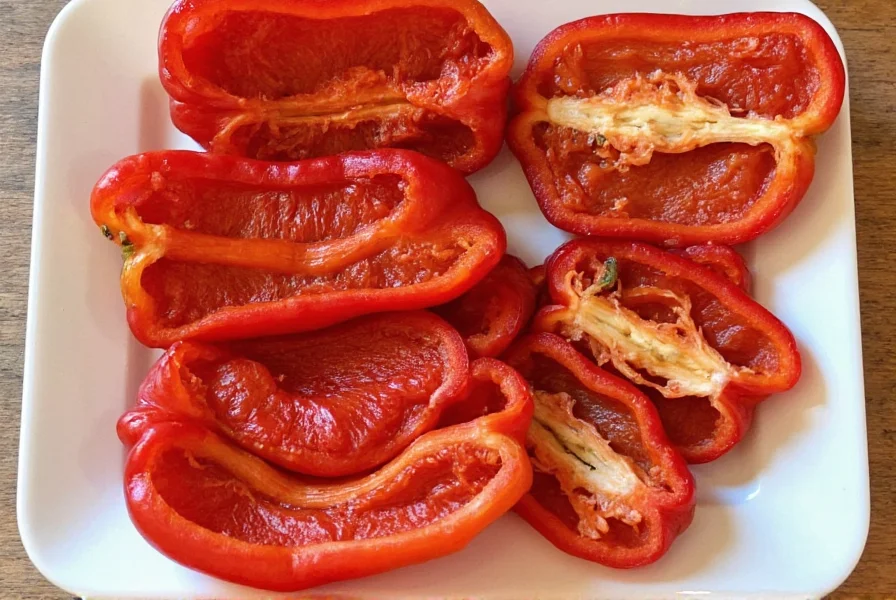
What Are Dehydrated Bell Peppers and Why Use Them?
Dehydrated bell peppers are fresh bell peppers that have undergone moisture removal through sun-drying, air-drying, or food dehydrators. This preservation method concentrates their natural sugars and nutrients while extending shelf life up to two years when stored properly. The dehydration process intensifies their sweet, earthy flavor profile making them ideal for adding depth to various dishes without the moisture content of fresh peppers.
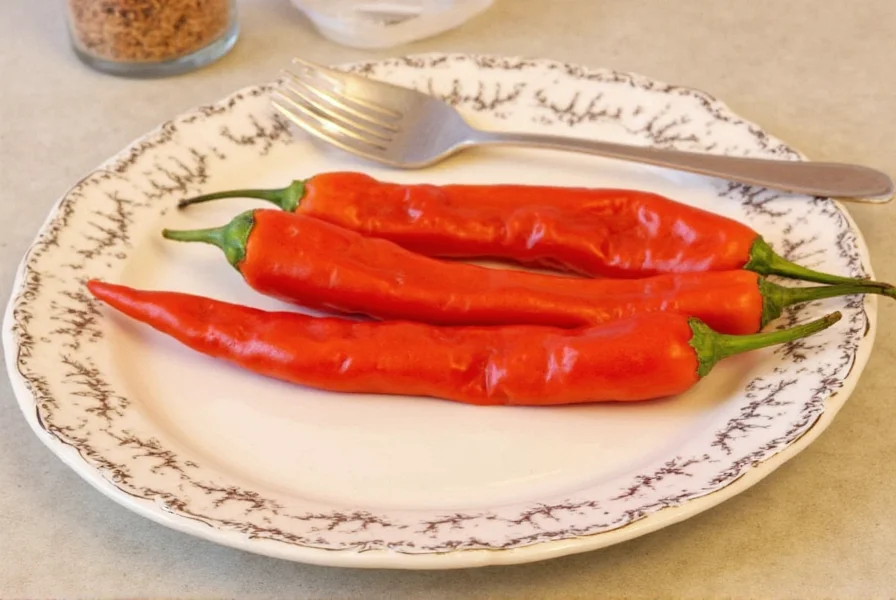
Nutritional Benefits of Dehydrated Bell Peppers
Dehydration concentrates nutrients while removing water content. This makes dehydrated bell peppers nutritionally denser than their fresh counterparts in several key areas:
| Nutrient | Fresh Bell Pepper (100g) | Dehydrated Bell Pepper (100g) |
|---|---|---|
| Vitamin C | 80 mg | 260 mg |
| Dietary Fiber | 2 g | 10 g |
| Iron | 0.3 mg | 2.5 mg |
| Calories | 20 kcal | 90 kcal |
How to Make Flavor-Packed Homemade Paprika from Dehydrated Bell Peppers
Craft professional-quality paprika at home using dehydrated bell peppers instead of purchasing expensive store-bought versions.
Step-by-Step Process:
- Select fully dried, vibrant red bell peppers (optimal for deep flavor development)
- Break into small pieces and toast lightly in dry pan over medium heat for 2-3 minutes
- Cool completely before grinding to fine powder using spice grinder or high-powered blender
- Store in airtight container away from light and heat
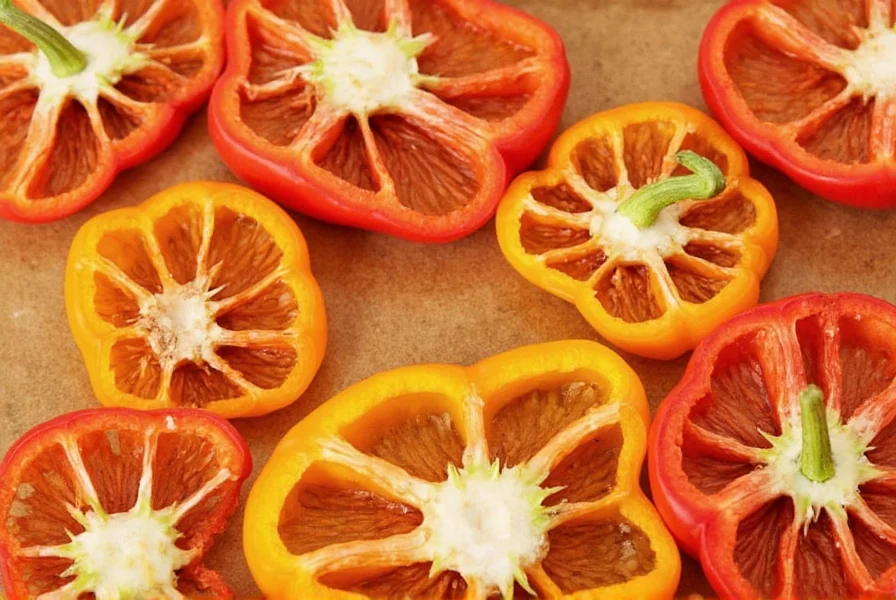
Pro Tips for Best Results:
Combine with pinch of smoked sea salt for depth, or add cumin for complexity. This homemade paprika elevates deviled eggs, roasted potatoes, and tomato-based sauces. For authentic Hungarian-style paprika, use only fully ripened red bell peppers without additional spices.
How to Boost Broths and Stocks Instantly with Dehydrated Bell Peppers
Incorporate dehydrated bell peppers during broth preparation to create complex flavor foundations without overpowering other ingredients.
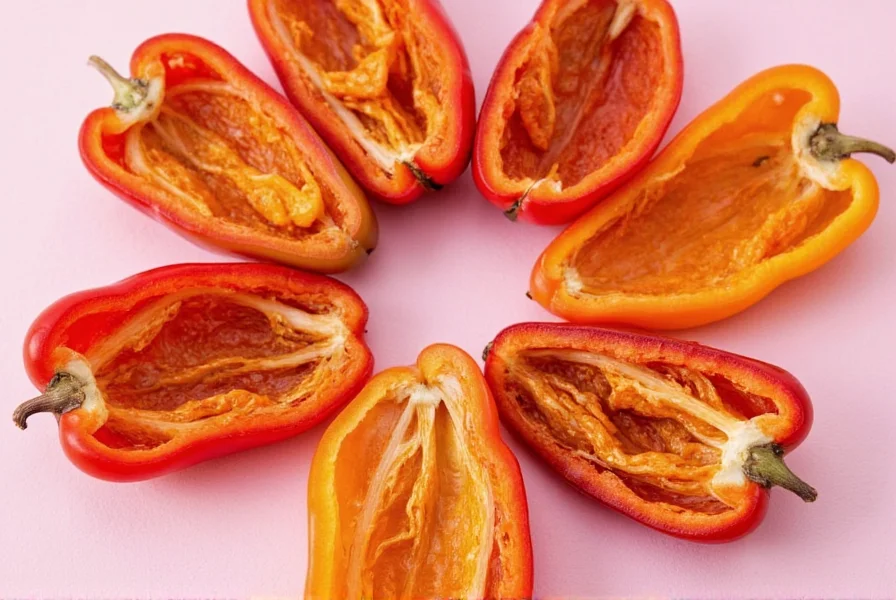
Flavor Enhancement Comparison:
| Standard Bone Broth | Bone Broth with Dehydrated Bell Peppers |
|---|---|
| Savory, meaty profile | Earthy, subtly sweet, and deeply savory |
| One-dimensional flavor | Complex and aromatic with natural sweetness |
| Requires additional ingredients for depth | Naturally balanced without extra components |
How to Create a Signature Dry Rub for Grilling Using Dehydrated Bell Peppers
Develop restaurant-quality grilled dishes with a custom dry rub featuring ground dehydrated bell peppers as the flavor foundation.
Professional BBQ Rub Formula:
- 2 tbsp ground dehydrated bell pepper (red preferred)
- 1 tbsp smoked paprika
- 1 tbsp garlic powder
- 1 tsp onion powder
- 1 tsp brown sugar
- ½ tsp chili powder
- 1 tsp sea salt
- ½ tsp black pepper
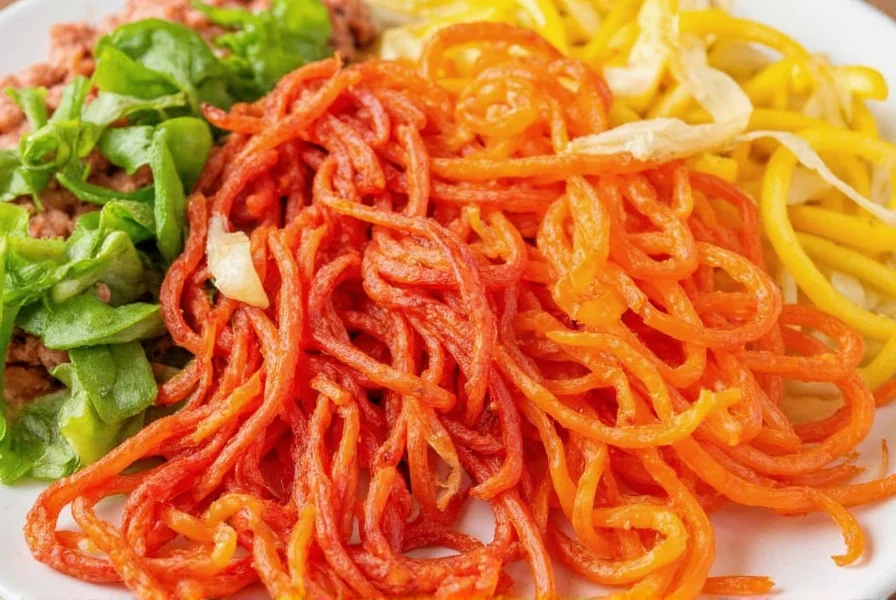
How to Blend Dehydrated Bell Peppers Into a Zesty Spice Oil
Create versatile flavored oil in minutes that elevates grilled vegetables, pasta dishes, and breads with concentrated pepper flavor.
Quick Spice Oil Recipe:
- ¼ cup high-quality olive oil
- 2 tbsp finely ground dehydrated bell pepper
- Pinch of sea salt
- Juice of half a lemon
- 1 clove minced garlic (optional)
Combine all ingredients in small jar, shake vigorously, and let sit for 2 hours before use. This infused oil maintains quality for 3 weeks when refrigerated.
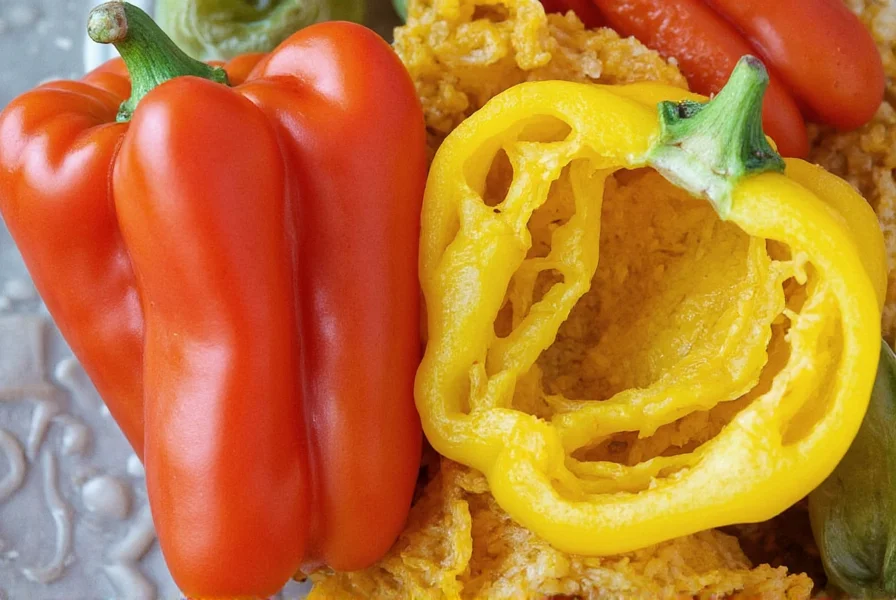
How to Mix Dehydrated Bell Peppers Into Hummus, Pesto, and Dips
Transform standard dips with vibrant color and subtle sweetness by incorporating dehydrated bell pepper powder.
Restaurant-Style Red Pepper Hummus:
- 1 can (15 oz) chickpeas, drained
- 2 tbsp tahini
- 1 tbsp lemon juice
- 1 tbsp ground dehydrated red bell pepper
- 2 cloves garlic
- 2-3 tbsp ice water
- Salt to taste
Process all ingredients in food processor until ultra-smooth. The dehydrated bell pepper adds both visual appeal and flavor complexity without overwhelming traditional hummus profile.
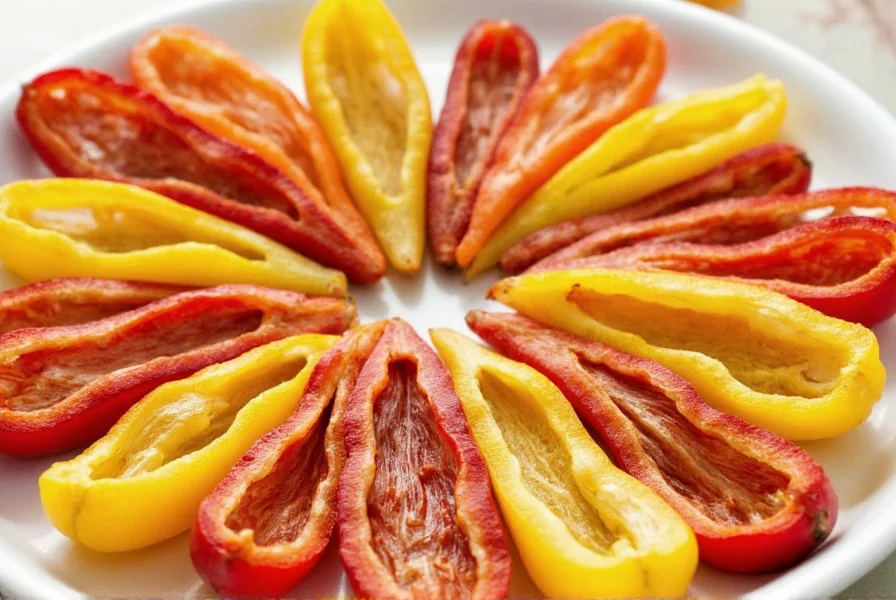
Frequently Asked Questions About Using Dehydrated Bell Peppers
Get immediate answers to common questions about incorporating dehydrated bell peppers into your cooking routine.
How long do dehydrated bell peppers maintain quality?
Properly stored in airtight containers away from light and heat, dehydrated bell peppers retain optimal flavor for 1-2 years. Vacuum sealing extends freshness to 24 months. Check for fading color or musty smell as indicators of degradation.
What's the proper rehydration technique for dehydrated bell peppers?
Soak in warm water for 15-20 minutes using 1:3 ratio (dried peppers to water). They won't regain fresh crispness but will soften sufficiently for cooked dishes. For powder applications, skip rehydration and use directly.
How does nutritional value compare to fresh peppers?
Dehydrated versions contain higher concentrations of vitamin C, fiber, and iron per weight due to water removal. One ounce (28g) dehydrated equals approximately one cup fresh peppers nutritionally, though some heat-sensitive vitamins decrease during dehydration.
What distinguishes dehydrated bell peppers from commercial paprika?
While paprika is made from dried peppers, it typically comes from specific Capsicum varieties. Dehydrated bell peppers produce milder, sweeter results than most paprika which can range from sweet to hot. Bell pepper paprika lacks the smokiness of traditional varieties.
What's the conversion ratio between fresh and dehydrated bell peppers?
One medium fresh bell pepper equals approximately 1 ounce (28g) dehydrated product or 3 tablespoons powder. When substituting in recipes, use one-third the amount of dehydrated product compared to fresh due to concentrated flavor.
How should dehydrated bell peppers be stored for maximum shelf life?
Store in airtight containers in cool, dark places. In humid environments, include food-safe silica packets to prevent moisture absorption. Never refrigerate unless in extremely humid climates, as temperature fluctuations cause condensation.
Can I make dehydrated bell peppers at home?
Yes, slice peppers ¼-inch thick and dehydrate at 135°F (57°C) for 6-12 hours until brittle. Oven drying works with door propped open at lowest setting. Home-dehydrated peppers offer fresher flavor but have shorter shelf life than commercial products.
Buying Guide: Choosing the Best Dehydrated Bell Peppers for Cooking
Select quality dehydrated bell peppers with these professional criteria:
| Type | Quality Indicators | Best Applications | Purchase Locations |
|---|---|---|---|
| Whole Dried Peppers | Vibrant color, flexible texture, no dark spots | Custom grinding, broth enhancement | Specialty food stores, online retailers |
| Fine Powder | Bright red hue, no clumping, uniform texture | Instant seasoning, spice blends | Gourmet markets, health food stores |
| Pre-Seasoned Blends | Simple ingredient list, no fillers | Quick meal enhancement, grilling | Supermarkets, ethnic markets |
Top-Rated Products for Different Needs:
- Natural Roots Organic Whole Dehydrated Red Bell Pepper – Ideal for home grinding and custom spice creation
- HerbCraft Smoked Bell Pepper Seasoning Blend – Perfect for immediate grilling applications without extra preparation
- Spice Garden Pure Bell Pepper Powder – Ready-to-use option maintaining maximum flavor intensity
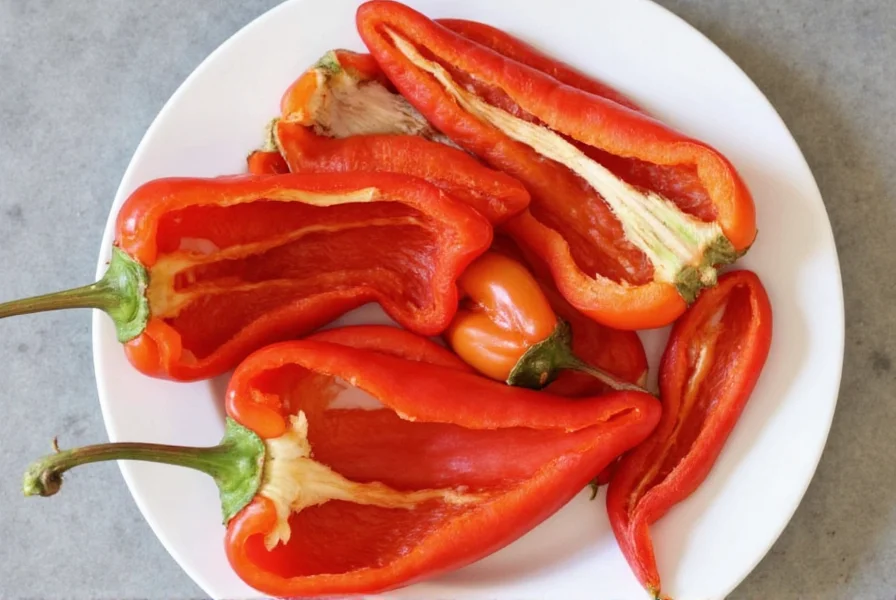
Conclusion: Maximizing Flavor with Dehydrated Bell Peppers
Dehydrated bell peppers offer concentrated flavor and nutrition that enhance dishes without requiring fresh ingredients. By transforming them into homemade paprika, broth enhancers, dry rubs, infused oils, and dip ingredients, you maximize their culinary potential while reducing food waste. These shelf-stable ingredients provide year-round access to bell pepper flavor with greater intensity than fresh versions. Implement these techniques to consistently elevate your cooking with minimal effort and maximum impact.
Start using your dehydrated bell peppers today with these practical applications that deliver professional results in home kitchens. The concentrated flavor and extended shelf life make them indispensable pantry staples for serious home cooks.
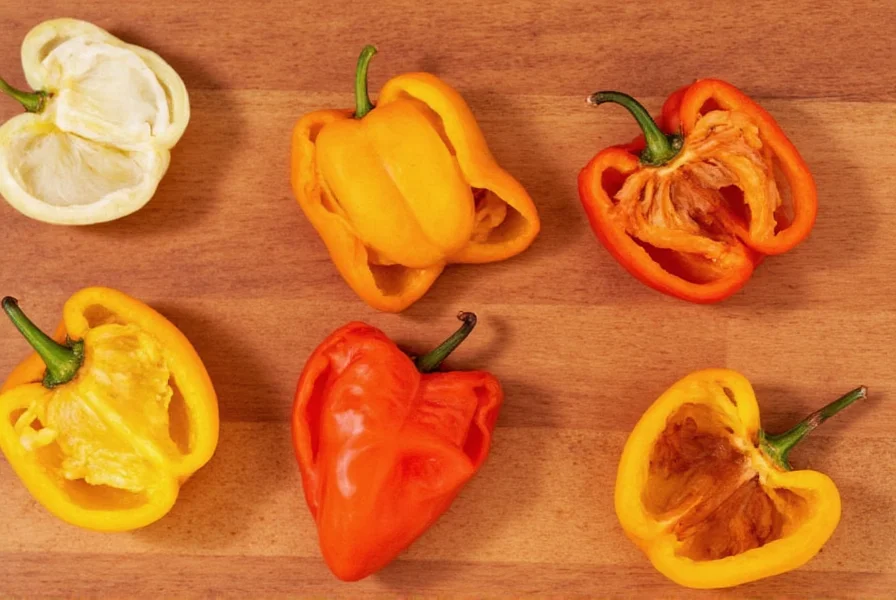

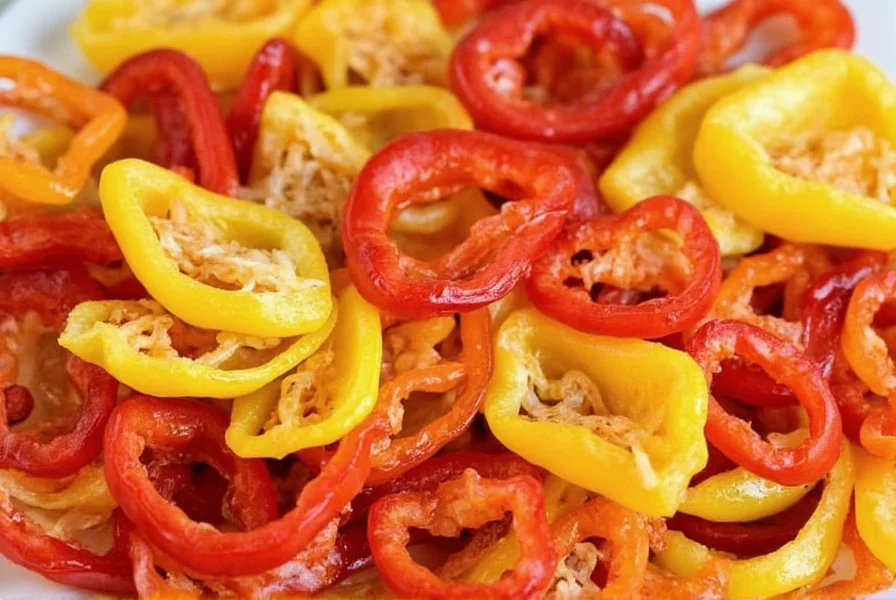









 浙公网安备
33010002000092号
浙公网安备
33010002000092号 浙B2-20120091-4
浙B2-20120091-4